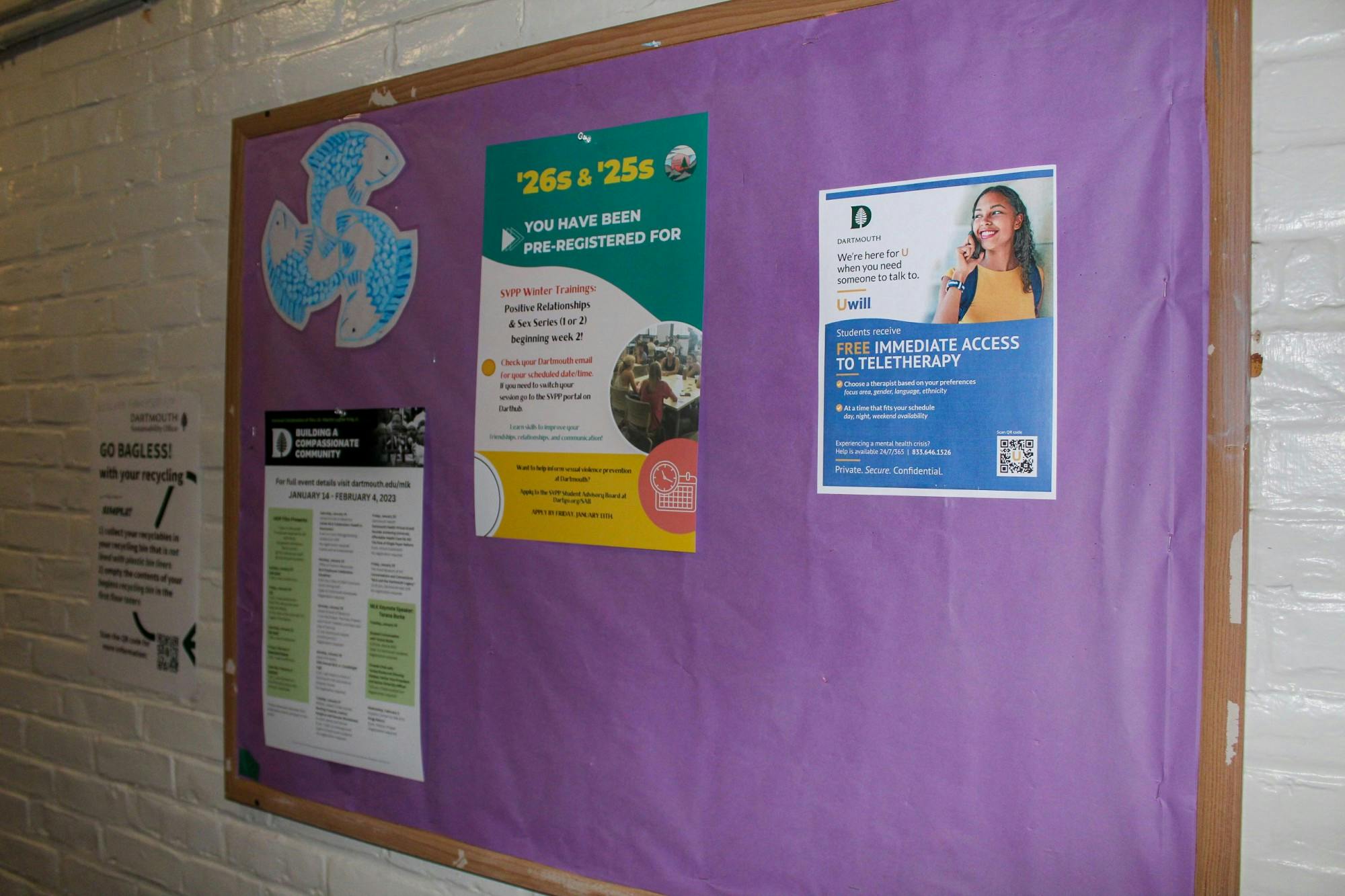Since UWill’s counseling services were first offered to Dartmouth students free of charge in Nov. 2022, 800 students have registered for counseling and have attended 1,981 cumulative sessions, according to associate Counseling Center director Alex Lenzen.
UWill provides unlimited, 24/7, year-round counseling services to all Dartmouth students wherever they are currently residing, according to Lenzen. Students can connect with counselors on UWill’s online platform and communicate with them via video, chat or messaging and have access to crisis support. According to Lenzen, the average satisfaction rating following sessions from students is currently 9.2 out of ten.
“We're hearing positive feedback about [UWill] filling a need in our campus — not that it's for everybody, not that this is where we're pushing all students to go for their therapy needs, but that it really does fit for a lot of students and what they're looking for,” Lenzen said.
Shania Smith ’23 said that she attended UWill counseling sessions during winter break after registering in the fall term.
“The thing that really sold me … was it was so easy to sign up. I could literally be on the phone with the person and just chat,” Smith said. “I like the idea too that you’re not necessarily married to one therapist for the entirety of the time you’re using their services.”
Students can register for UWill online, where they provide personal information and note what they are looking for in a counselor, including specialization, timeframe and identity-based preferences like race and gender, according to Lenzen.
Dartmouth Student Government vice president and mental health committee chair Jessica Chiriboga ’24 said that she has been involved in bringing the service to campus since DSG began researching teletherapy options and submitted a proposal to the College in the fall of 2021. The proposal sparked a collaboration between student government, the counseling center and the Dartmouth Mental Health Student Union.
“I was blown away by the number of signups that we got within the first two weeks,” Chiriboga said. “It was really a sign to me that students had always been asking for this resource, and [I saw] that need validated in the number of signups.”
According to Chiriboga, part of the appeal of UWill was its all-day availability that could cater to students' busy schedules — which Student Government and the Dartmouth MHU took into consideration when looking into teletherapy options.
Even so, Smith said she struggles to find the time to attend counseling sessions. Smith explained that she met with a counselor three times over winter break, but has not attended any more sessions since winter term began. Regardless, she reported a “positive” overall experience.
Lenzen said that UWill’s unlimited counseling means that students can receive long-term counseling without using their insurance or other financial resources to fund appointments with local providers. Other programs the College considered before choosing UWill would place caps on the number of sessions a patient could schedule, she added.
“[UWill] was driven by a student interest in a more affordable option for ongoing therapy, because the Counseling Center offers free therapy on a short term basis, and we do our best to accommodate as many students as we can, but there's still a need for additional mental health services,” Lenzen said.
The contract the College signed with UWill will last two years before it is up for renewal, according to Lenzen. Though she declined to provide the total cost, Chiriboga wrote in a follow up email that UWill was “funded by a very generous donor.”
“This is really a chance for us to get some of that feedback from students to see if it is meeting the needs like we hope it will, and make sure those student ratings are high and make sure it's being utilized by students in a way that feels like it's supporting their mental health and treatment goals,” Chiriboga said.
Given the current level of interest in UWill, Chiriboga says DSG’s Mental Health Committee aims to support renewing the contract after two years.
Considering ways to improve UWill’s implementation on campus, Chiriboga and Lenzen both noted efforts to ensure students know that UWill is available, such as campus posters. Additionally, there is student demand for private locations on campus to take counseling sessions, according to Chiriboga.
“We're actively working as the mental health committee to identify places in the library and other places around campus that students might be able to reserve spaces to take these appointments,” Chiriboga said.
In addition to the counseling services from UWill and the Counseling Department, Lenzen noted the Student Wellness Center, the Academic Skills Center, Student Accessibility Services, the undergraduate dean's office and residential services as parts of a system supporting student mental health.
“[UWill is] not the end all, be all answer to some of the mental health concerns that we're all experiencing collectively,” she said. “It is one of the options that are available.”
Students interested in counseling through Dartmouth College Health Service can schedule appointments either on the phone at 603-646-9442, at the counseling office at 7 Rope Ferry Road, Dick’s House 2nd floor, or through their health service portal. In the case of an immediate crisis, these lines Uhelp Crisis Line at 833-646-1526, the New Hampshire Rapid Response Access Point at 833-710-6477 or the National Suicide Prevention Lifeline at 988.




